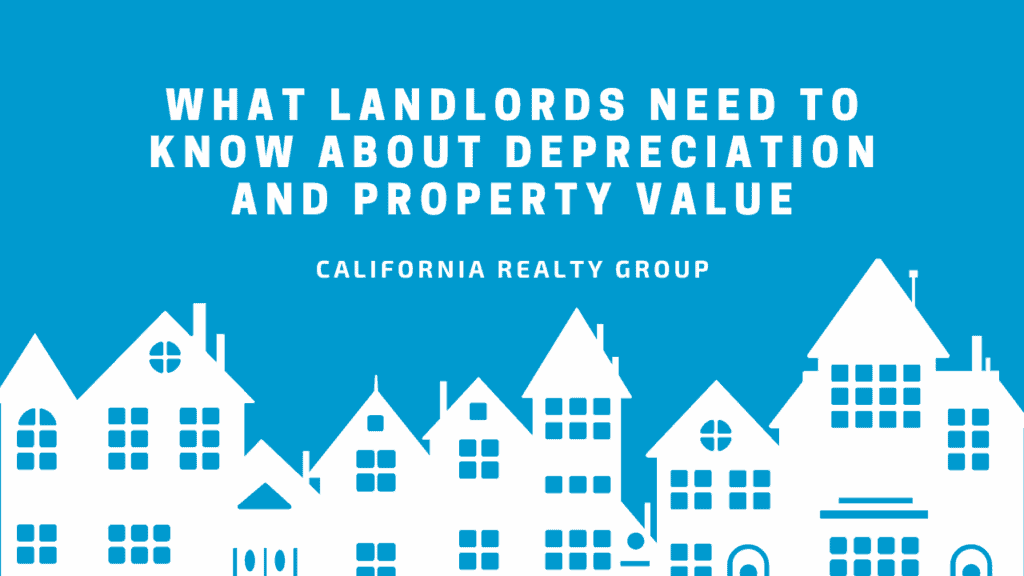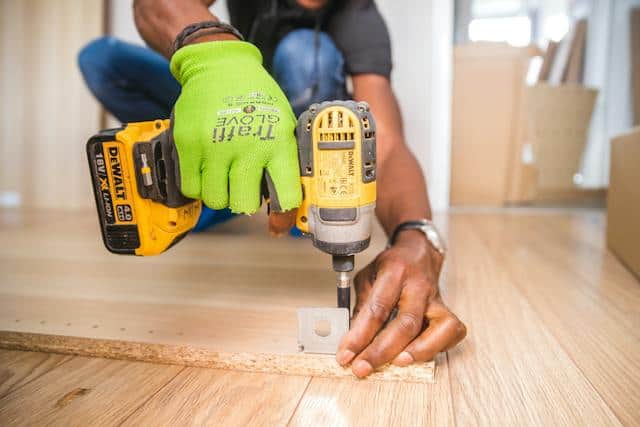What Landlords Need to Know About Depreciation and Property Value
Key Takeaways
- Depreciation can help lower your taxable income and boost your rental’s cash flow along the way.
- Property value and depreciation work together to shape your short-term savings and long-term gains.
- Upgrades and improvements add value, both on the market and in your tax strategy.
- With the right approach, you can use depreciation as a smart financial tool to grow your rental investment over time.
Owning a rental property is about more than collecting rent—it’s a long-term investment. To make the most of it, landlords need to understand how property value and depreciation impact both taxes and financial growth.
In this guide, California Realty Group breaks down how depreciation works, how it affects your rental’s tax strategy, and why it’s important to view depreciation and market value as two sides of the same investment coin.
What Is Depreciation in Rental Real Estate?
Depreciation is an accounting method used to allocate the cost of a physical asset, like a rental property, over its useful life. While property values might increase over time in the real world, the IRS allows you to deduct a portion of the property’s cost each year as if it were losing value due to wear and tear, age, or obsolescence.
This deduction is available only for the structure itself and certain improvements, not the land. Land does not wear out or become obsolete in the eyes of the IRS, so it cannot be depreciated.
How Depreciation Works
For most residential rental properties, the IRS allows you to depreciate the building over 27.5 years. This means you can deduct a portion of the property’s value from your taxes each year—specifically, 1/27.5 of the building’s cost (not including the land).
For example, if you buy a rental property for $300,000 and the land is worth $60,000, then $240,000 is the depreciable amount. Divide that by 27.5, and you can deduct about $8,727 per year as a depreciation expense.
Keep in mind that depreciation begins when the property is ready and available to rent, not when it’s rented out or when you bought it. As long as it’s listed and in rentable condition, the clock starts ticking.
How Depreciation Impacts Your Taxes
The primary benefit of depreciation is that it reduces your taxable rental income. If you earn $20,000 in rental income but can deduct $8,727 for depreciation, you’re only taxed on $11,273 (not including other deductions like repairs or interest). This can significantly lower your taxes each year and improve your cash flow.
However, there’s a catch: depreciation isn’t free money. When you sell the property, the IRS expects you to “recapture” that depreciation, meaning you’ll owe taxes on the amount you deducted during ownership, usually at a 25% rate. Still, the upfront tax savings often outweigh the recapture tax, especially if you’re strategic about how and when you sell or reinvest.
Depreciation Recapture: What to Expect When You Sell
When you eventually sell the property, depreciation recapture becomes a critical consideration. The IRS requires you to pay taxes on the depreciation deductions you’ve taken throughout your ownership period.
If you’ve claimed $80,000 in depreciation and sell the property, that $80,000 is subject to a depreciation recapture tax, typically at 25%. This can come as a surprise if you haven’t budgeted for it, so it’s essential to factor this into your long-term investment strategy.
Many landlords use a 1031 exchange to defer this tax. A 1031 exchange allows you to reinvest the proceeds from a sale into another “like-kind” property and defer capital gains and depreciation recapture taxes. But there are rules and time limits, so it’s best to work with a professional who can guide you on the process
Depreciation vs. Property Value
Depreciation is a tax concept, while property value is a market concept. It’s entirely possible—and quite common—for your property to be depreciating on your tax return while appreciating in the real estate market.
For instance, your $300,000 property might have depreciated by $80,000 over a decade on paper, but in the market, it could now be worth $400,000. This is why it’s important to separate your tax strategy from your long-term wealth strategy.
The two work in parallel, but they’re not the same thing. This duality is what makes real estate such a powerful investment. You can reduce your taxable income each year through depreciation while still gaining equity through market appreciation.
How Improvements Affect Depreciation
Not all expenses are immediately deductible. Major renovations or capital improvements—like replacing the roof, upgrading the HVAC, or building an extension—must be depreciated over time. These improvements add to your property’s basis, increasing the amount you can depreciate.
For example, if you spend $20,000 replacing the roof, that amount is added to your depreciable basis and deducted over its lifespan, based on IRS guidelines. Keeping track of these improvements is crucial. Not only do they increase your depreciation deductions, but they also affect your overall tax situation when you eventually sell the property.
Depreciation and Your Financial Strategy
Smart landlords use depreciation as a tool for optimizing their rental property’s financial performance. By lowering taxable income, depreciation improves your net cash flow—money you can reinvest in your property, use for new investments, or save for future expenses. However, depreciation also adds complexity to your tax filings.
You’ll need to keep detailed records of your property’s basis, improvements, and when depreciation began. Depreciation schedules must be accurate, and adjustments have to be made if a property is taken out of service or sold. Given the complexity, many landlords find it helpful to work with professionals who specialize in real estate.
Protecting and Enhancing Property Value
While depreciation provides short-term tax benefits, maintaining and increasing your property’s market value should still be a priority. Regular maintenance, curb appeal improvements, and staying competitive with market trends all contribute to a healthy return on investment.
Keep your property in good shape with routine inspections and timely repairs. Consider upgrades that increase value, like energy-efficient appliances or modern finishes. These may qualify for depreciation and simultaneously boost your market value.
Maintaining accurate financial records—including depreciation schedules and capital improvements—will not only support your tax filings but also make your property more appealing to buyers should you decide to sell.
Final Thoughts
Understanding how depreciation and property value impact your rental investment is key to maximizing both short-term savings and long-term gains. While depreciation offers valuable tax benefits and improves cash flow, your property’s value is a strong indicator of overall financial growth.
When you know how to use both to your advantage—and have the right experts on your side—you can manage your rentals more effectively and make smarter financial decisions. If you’re looking for guidance, the team at California Realty Group is here to help you navigate the details and build a more profitable rental portfolio. Reach out today to get started.





